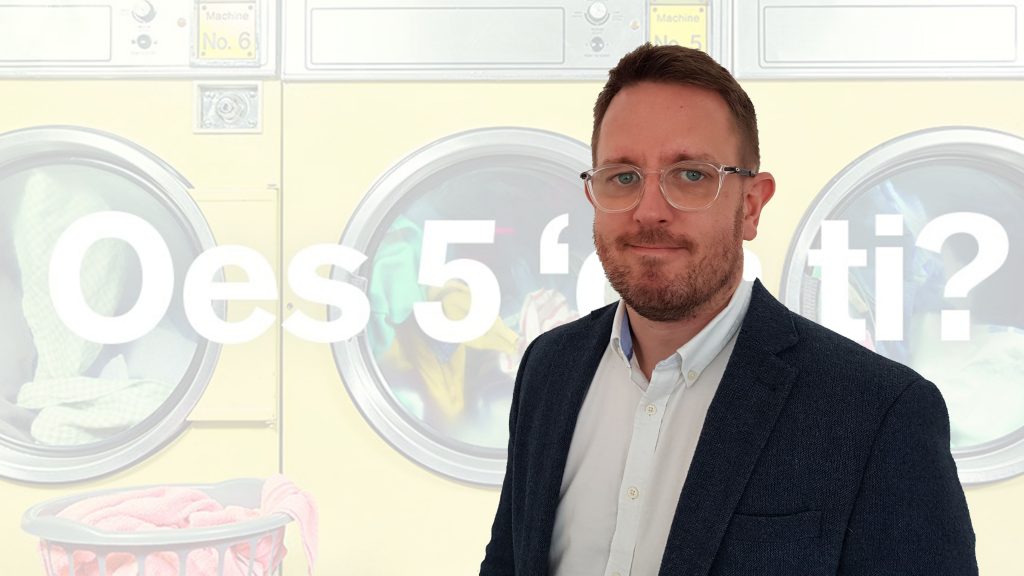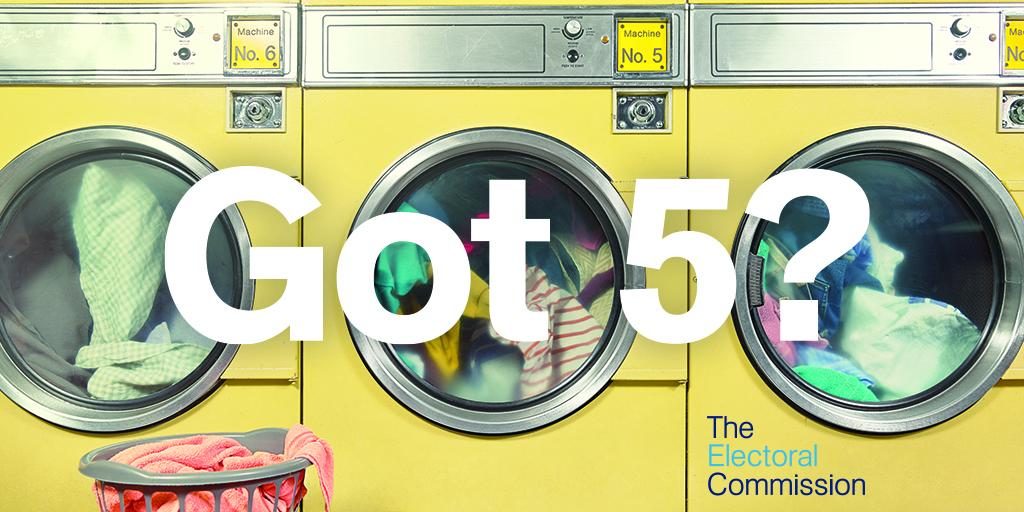The ‘ins and outs’ of a General Election
29 November 2019
On 12 December millions of people will make the journey to halls and schools across the UK to cast their votes in the upcoming general election. Whilst all it takes on the day is a simple cross in a box, the process of planning and executing an election is a full-time job.
In Wales, this responsibility falls to Cardiff alumnus Rhydian Thomas (BSc 2000) who heads up Electoral Commission Wales. We sat down with him to discuss what goes into organising a general election, and about his time as an undergraduate at Cardiff.
The Commission’s role
We began by asking Rhydian, who graduated from Cardiff with a degree in Modern History and Politics, what role the commission plays in a general election. He explained that there is a common misconception that it’s the commission which runs the election, but in fact, “the basic running of the election is done by independent returning officers. There are 22 of them in Wales and are generally the chief executives of the local authorities”.
Rhydian tells us that the commission has three main roles in the forthcoming December poll.
Administrating the election
Administration of a general election ranges from nominations, to the count, to absent voting, as well as evaluating the performance of returning officers and observing the election itself.
As is to be expected, it’s a large operation. “In terms of numbers we’re talking around 7000 staff in Wales, and that includes those at the counts and staff working at one of the 2300 polling stations across the country,” he says.
Uniquely in Wales, the election is done completely bilingually, this includes the declaration by the returning officers that you see on TV.
“It’s important to us that elections are run bilingually, and that individual voters can access the process bilingually at any level,” he notes.
Communicating with the public
The commission’s second role is communication, a large part of which focuses on voter registration.
Rhydian tells us about the massive changes in communication over the last few years which has resulted in the commission adapting its practices.
“If you go back 10 years, the focus of our public awareness was TV and radio and even some print. Now that’s changed. We still run TV adverts because it’s still an effective way to message certain elements of the electorate. Much of our work, especially when it comes to targeting younger people and students, and those who aren’t as connected to the democratic process as other groups in our society, is to get the message out there to those groups through social media”.

He points out that this isn’t done solely through paid advertising but also more organically by ordinary users, noting how Facebook’s ‘share your registration’ feature and encouragement by celebrities had helped drive registrations.
The third focus of Rhydian’s role is around electoral regulation. “We regulate the work of the spending of political parties who take part in the election”, and that, “we also give advice and guidance to parties and candidates as well.”
Memories of Cardiff
As a Cardiff alumnus, he spoke about his time at the University and how it had shaped his outlook. “I come from Ammanford in Carmarthenshire, a small town in West Wales, and growing up you think you’ve got a grasp on society and your ways of thinking. I think what being at Cardiff taught me was that were many ways of thinking about things”.
This wasn’t just in seminars and lectures, but through his own personal life as an undergraduate. “In my flat I was living with guys from London, Cardiff, France, Greece and Zambia, all very different people with different ideas. I was surrounded by people from all over the world, it was a truly international context.”
His interest in elections was evident from the start. “On my first day, after my parents had dropped me off, I met up with my flatmates and went down to the Students’ Union. However, it was the night of the 1997 devolution referendum to establish the Welsh National Assembly, so I made sure I left early enough to watch the result!”
Finally, we asked about his favourite Cardiff pub. After trying lots of places in his early student years, he eventually settled on one spot. “We spent a lot of time in the Taf in the Students’ Union, mainly because of the cheap drinks and good music!”
- January 2026
- November 2025
- September 2025
- July 2025
- June 2025
- May 2025
- April 2025
- March 2025
- February 2025
- January 2025
- October 2024
- September 2024
- August 2024
- July 2024
- June 2024
- May 2024
- April 2024
- March 2024
- February 2024
- January 2024
- December 2023
- November 2023
- October 2023
- September 2023
- August 2023
- July 2023
- June 2023
- May 2023
- April 2023
- March 2023
- February 2023
- January 2023
- November 2022
- October 2022
- September 2022
- August 2022
- July 2022
- June 2022
- May 2022
- April 2022
- March 2022
- February 2022
- January 2022
- December 2021
- November 2021
- October 2021
- September 2021
- August 2021
- July 2021
- June 2021
- May 2021
- April 2021
- March 2021
- February 2021
- January 2021
- December 2020
- November 2020
- October 2020
- September 2020
- August 2020
- July 2020
- June 2020
- May 2020
- April 2020
- March 2020
- January 2020
- December 2019
- November 2019
- October 2019
- September 2019
- August 2019
- July 2019
- May 2019
- April 2019
- March 2019
- February 2019
- January 2019
- December 2018
- November 2018
- October 2018
- September 2018
- August 2018
- July 2018
- June 2018
- May 2018
- April 2018
- March 2018
- February 2018
- December 2017
- November 2017
- October 2017
- September 2017
- August 2017
- July 2017
- June 2017
- May 2017
- April 2017
- March 2017
- February 2017
- January 2017
- November 2016
- October 2016
- September 2016
- July 2016
- June 2016
- May 2016
- April 2016
- March 2016
- February 2016
- January 2016
- December 2015
- November 2015
- October 2015
- September 2015
- August 2015
- January 2015
- December 2014
- November 2014
- September 2014
- August 2014
- May 2014